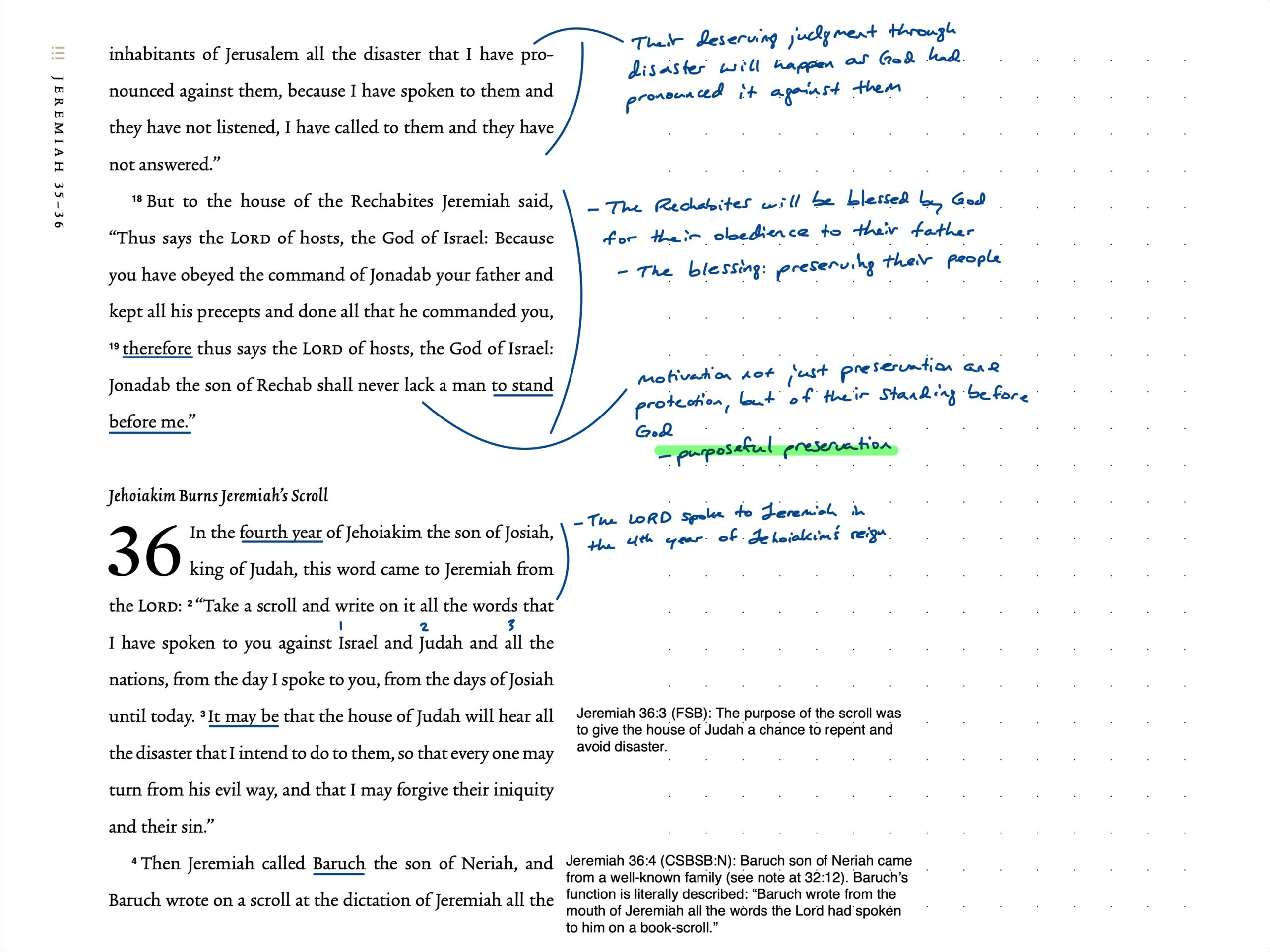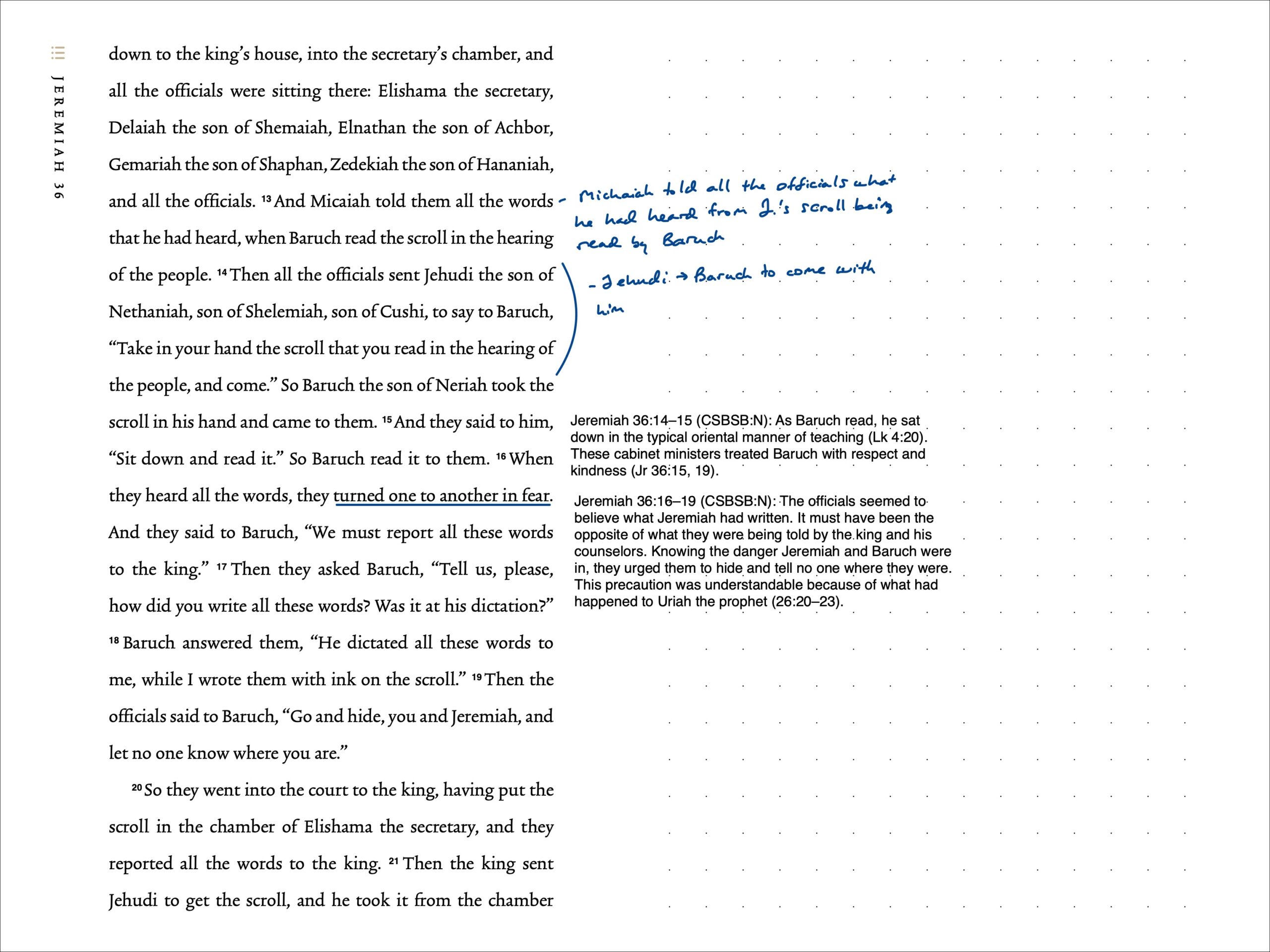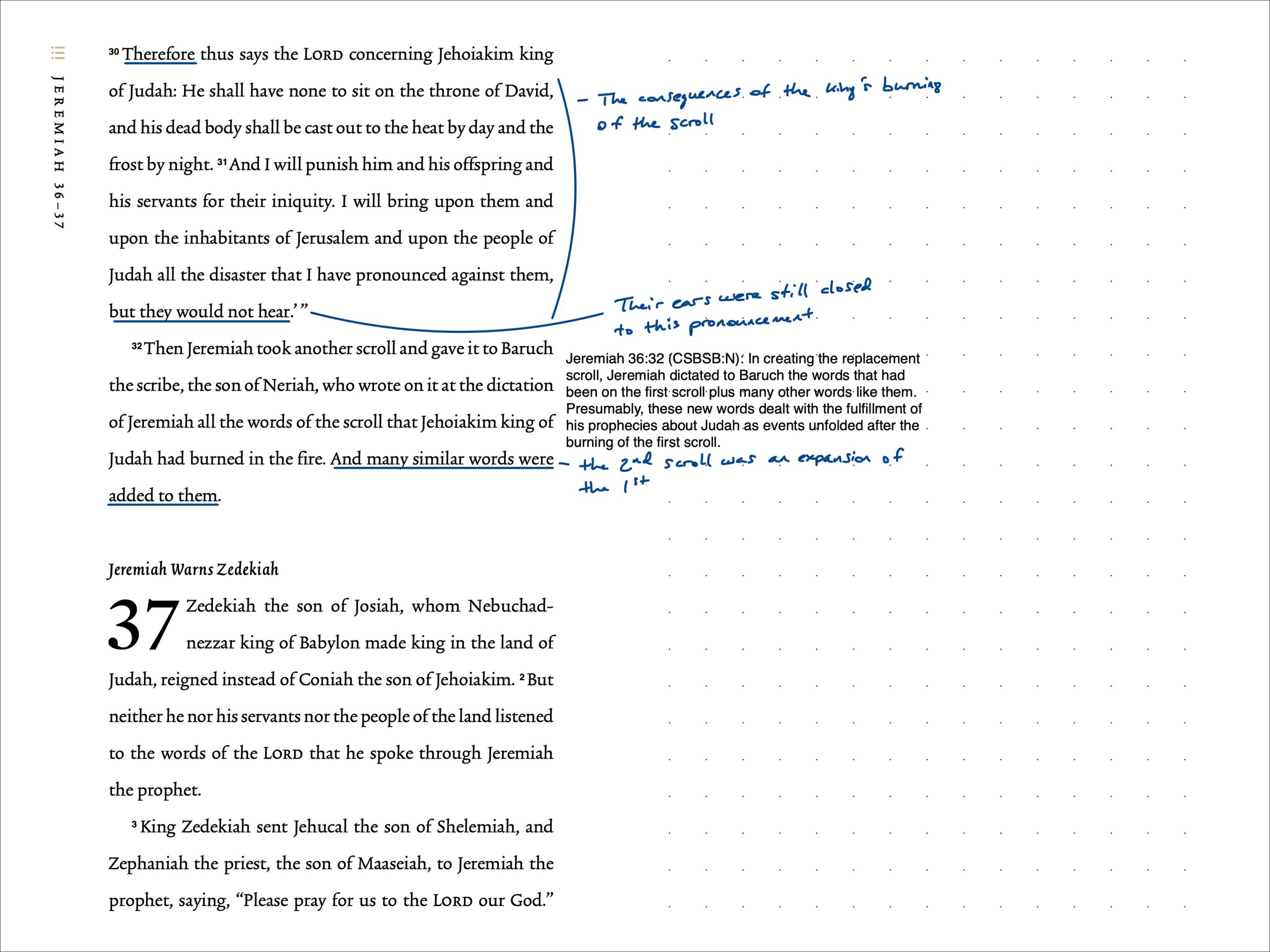| Date | Version | Reading Plan |
|---|---|---|
| @July 29, 2023 | ESV (2016) | ESV Prophets Plan 2023 |
Pericopes
- Jehoiakim Burns Jeremiah’s Scroll
Notes
The chapter opens with a word given by the LORD to Jeremiah during the fourth year of Jehoiakim to write a scroll containing all the words He had spoken against Israel, Judah and all the nations. The purpose of the scroll was to give the house of Judah an opportunity to repent and avoid disaster.
In Jer. 36:4, Jeremiah calls on Baruch, his scribe, to write the scroll at his dictation. Baruch came from a well-known family (see Jer. 32:12) and his function is literally described as: “Baruch wrote from the mouth of Jeremiah all the words the Lord had spoken to him on a book-scroll.” Jeremiah then tells Baruch to go to the LORD’s house on a day of fasting and read the scroll “in the hearing of all the men of Judah who come out of their cities.” (Jer. 36:6).
In Jer. 36:9-10, Baruch did as commanded in the fifth year and ninth month of Jehoiakim’s reign when a fast before the LORD had been proclaimed. This would have been 604 BC, when Nebuchadnezzar destroyed the Philistine city of Ashkelon. The fast may have been called as a response to this event and of the national emergency it posed to Judah.
In Jer. 36:11-19, the response of Micaiah—whose family was supportive of Jeremiah—told the officials of Judah all the words he had heard. The officials then sent Jehudi to request Baruch’s presence before the officials and to read Jeremiah’s scroll (Jer. 36:14). Baruch read the scroll in front of the officials who listened intently with respect and kindness. They responded with fear at the words spoken and said that they must be reported to the king (Jer. 36:16). Knowing of Baruch’s danger after what had happened to Uriah the prophet (Jer. 26:20-23), they ordered him and Jeremiah to hide “and let no one know where you are.” (Jer. 36:19)
In Jer. 36:20-26, the group placed the scroll in the chamber of the secretary, Elishama, and reported all of its words to the king (Jer. 36:20). The king sent for Jehudi to get the scroll and to read it to him. As Juhudi read, the king burned columns of the scroll in a fire pot until it was completely consumed (Jer. 36:24). There was no fear among the king and his servants despite the officials pleading not to burn it (Jer. 26:25). The king ordered Jeremiah and Baruch to be seized, “but the LORD hid them” by protection provided by loyal friends (Jer. 36:26).
In Jer. 36:27-29, the LORD instructs Jeremiah to write a second scroll with all of the words of the former. He also tells Jeremiah to rebuke the king of Judah for burning the scroll (Jer. 36:29).
Jer. 36:30-31 represent the consequences for the king’s burning of the scroll; that he “shall have none to sit on the throne of David” and that his dead body will be cast out (Jer. 36:30). God will punish him and his offspring for their iniquity.
The final verse (Jer. 36:32) describes Jeremiah’s writing of the second scroll. In creating the replacement scroll, Jeremiah dictated to Baruch all words written on the first and “many similar words were added to them.” An expansion of the first scroll, the second is presumed to contain additional content such as the fulfillment of the prophecies and events about Judah that had happened following the burning of the first scroll.
Application
Again we see in this chapter the length God will go to extend mercy on His people and of their blackened hearts toward rebellion. Jeremiah’s scroll was to be an olive branch but instead was methodically burned without remorse. What other answer is God to have to such obstinacy than its full due punishment.
The things of this chapter point to the seriousness of sin and that, apart from clinging to salvation offered in Christ, we merit the same punishment. In listening to a TVC sermon yesterday, I heard the pastor say, “The gospel is not the good news that your sin is not serious.” So serious is our sin and its consequences that God had to sacrifice His only Son. Praise be to God that He would choose take on flesh, be our worthy offering, and provide for us a path back to Himself.
Scripture Journal Notes
Commentaries & Resources Used
- ESV Study Bible. (Wheaton, IL: Crossway, 2008)
- Faithlife Study Bible (Lexham Press, 2016)
- Believer’s Bible Commentary (Thomas Nelson, 2016)
- CSB Study Bible Notes (Holman Bible Publishers, 2017)
- Matthew Henry’s Commentary on the Whole Bible (Guardian Press, 1976)
- The Bible: A Reader’s Guide (Sterling Publishing, 2011)
- The Infographic Bible (Zondervan, 2018)
- ESV Digital Scripture Journal (Crossway, 2019)




